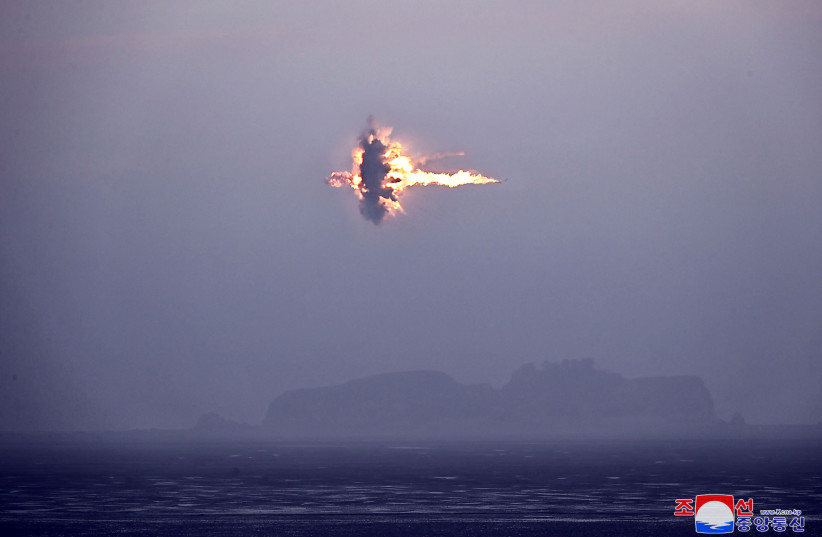North Korean leader Kim Jong Un on Monday called for the constitution to be changed to ensure that South Korea is seen as the "primary foe" and warned his country did not intend to avoid war should it happen, state media KCNA reported on Tuesday.
In a speech to the Supreme People's Assembly, North Korea's rubber-stamp parliament, Kim said he had concluded that unification with the South was no longer possible and accused Seoul of seeking regime collapse and unification by absorption.
Kim said the constitution should be amended to educate North Koreans that South Korea is a "primary foe and invariable principal enemy" and define the North's territory as separate from the South.
"We don't want war but we have no intention of avoiding it," Kim was quoted as saying by KCNA.

Severing inter-Korean communications
North Korea should also plan for "completely occupying, subjugating and reclaiming" South Korea in the event of a war, and South Koreans should also no longer be referred to as fellow countrymen, Kim added, calling for the severing of all inter-Korean communication and the destruction of a monument to reunification in Pyongyang.
Three organizations dealing with unification and inter-Korean tourism would also be shut down, state media added.
South Korean President Yoon Suk Yeol, at a cabinet meeting, said Pyongyang was being "anti-national" for calling the South a hostile country.
Escalation in the region
Kim's call for constitutional changes come as tensions have worsened in the Korean Peninsula recently amid a series of missile tests and a push by Pyongyang to break with decades of policy and change how it relates to the South.
Significant portions of Kim's speech laid out plans for improving livelihoods and he suggested his rhetoric toward South Korea and the US was designed to help maintain internal unity and achieve economic and military goals, while the US was distracted with other crises, said Lim Eul-chul, professor of North Korea studies at South Korea's Kyungnam University.
On the other hand, Won Gon Park of Seoul's Ewha Womans University argued that Kim appeared to feel threatened by strengthened extended nuclear deterrence by South Korea and the US, the deployment of US strategic assets to the Korean Peninsula, and trilateral military efforts with Japan.
"Kim Jong Un's increasingly aggressive language appears to show he feels he's lost the upper hand in the inter-Korean relationship," Park told Reuters.
